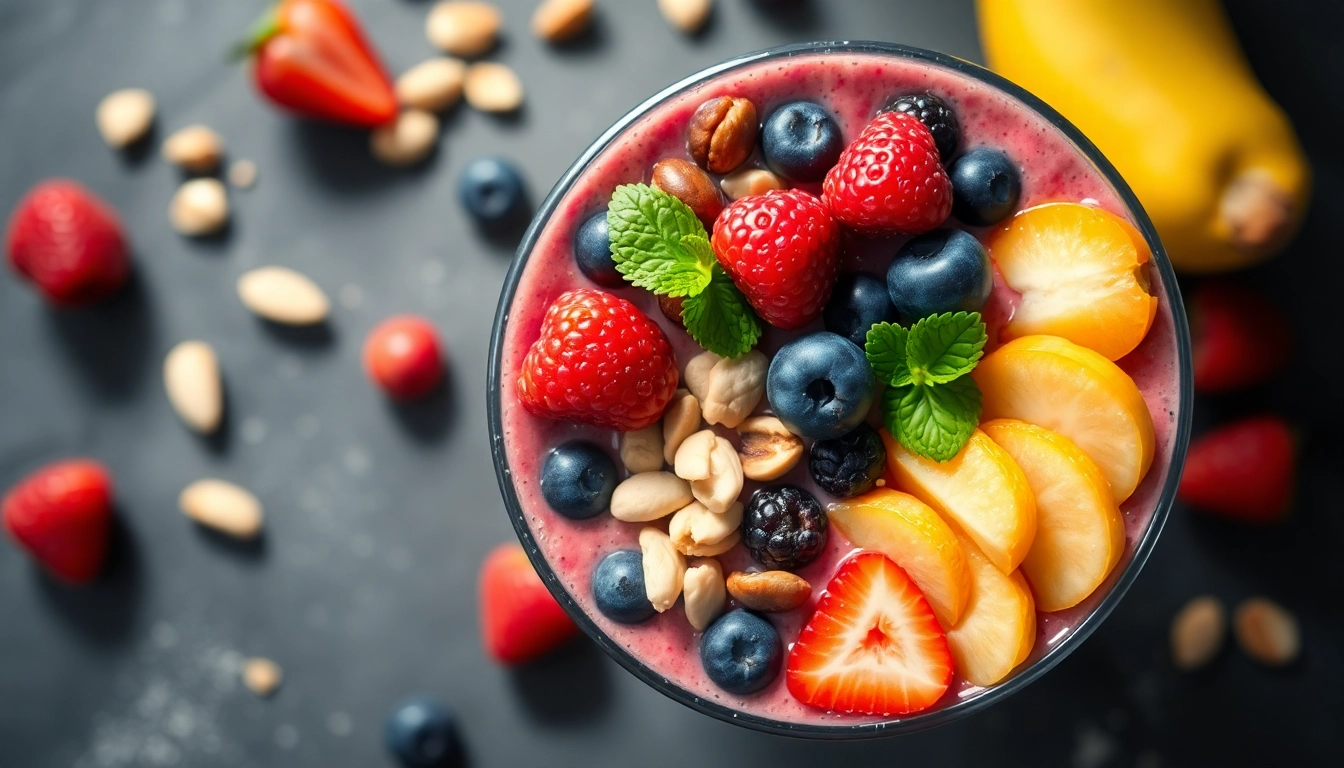Understanding Antioxidants: What They Are and Why They Matter
Antioxidants have become a buzzword in health and nutrition discussions, often touted as miraculous compounds that protect our bodies from various ailments. But what exactly are antioxidants, and why are they essential for our health? Simply put, antioxidants are compounds in foods that scavenge and neutralize free radicals, which are unstable molecules that can cause oxidative damage in our bodies. In this article, we explore the multifaceted role of antioxidants in nutrition, their benefits, and how to incorporate them into your diet. For more detailed insights on antioxidants, let’s dive deeper into this fascinating topic.
Defining Antioxidants and Their Role
Antioxidants are molecules that neutralize free radicals. These free radicals are a byproduct of normal metabolic processes and can also be introduced through environmental factors, such as pollution, radiation, smoking, and stress. When free radicals accumulate, they can cause oxidative stress, leading to cellular damage and contributing to the progression of various diseases, including cancer, cardiovascular diseases, and neurodegenerative disorders.
Antioxidants defend our bodies against this oxidative stress. They can be classified into two main categories: natural and synthetic. Natural antioxidants come from our diet, particularly from fruits, vegetables, whole grains, nuts, and seeds. Synthetic antioxidants are often added to food products to enhance their shelf life and prevent rancidity. Common examples of antioxidants include vitamin C, vitamin E, selenium, and polyphenols.
Types of Antioxidants Found in Foods
Antioxidants can be categorized into several classes, each with unique properties and functions:
- Vitamins: Vitamin C and E are two critical vitamins that serve as antioxidants. Vitamin C, found abundantly in citrus fruits, berries, and vegetables like bell peppers, helps regenerate other antioxidants. Vitamin E, present in nuts, seeds, and vegetable oils, protects cell membranes from oxidative damage.
- Minerals: Selenium and manganese are trace minerals vital for antioxidant defense. They play a crucial role in the action of antioxidant enzymes that mitigate oxidative stress.
- Polyphenols: Found primarily in plant-based foods, polyphenols have gained attention for their ability to fight oxidative stress. These antioxidants are prominent in tea, coffee, berries, dark chocolate, and red wine and contribute to various health benefits.
- Carotenoids: These are the pigments found in fruits and vegetables that give them their vibrant colors. Beta-carotene, lutein, and zeaxanthin are well-known examples that enhance eye health and protect against certain chronic diseases.
The Importance of Antioxidants in Daily Nutrition
Incorporating a variety of antioxidants in your daily diet is vital for maintaining optimal health. They not only help combat oxidative stress but also support various bodily functions:
- They may reduce inflammation, an underlying factor in many chronic conditions.
- Antioxidants can help bolster the immune system, allowing your body to better defend against infections and illnesses.
- Research suggests that diets rich in antioxidants may contribute to a lower risk of chronic diseases, including heart disease and certain cancers.
- They are also linked to better skin health, as they can combat the damaging effects of UV radiation and environmental pollutants.
The Health Benefits of Antioxidants
How Antioxidants Protect Against Oxidative Stress
Oxidative stress occurs when there is an imbalance between free radical production and antioxidant defenses. This can lead to cell and tissue damage, accelerating the aging process and increasing the risk of numerous health issues. By neutralizing free radicals, antioxidants play a pivotal role in protecting cells from this damage.
Several studies have indicated that diets rich in antioxidants may improve overall longevity and quality of life. A notable example is the Mediterranean diet, which emphasizes fruits, vegetables, whole grains, and healthy fats— all rich in antioxidants. Longitudinal studies have shown that individuals following this dietary pattern have lower rates of chronic diseases.
Antioxidants and Chronic Disease Prevention
Scientific research continues to uncover how antioxidants may reduce the risk of developing chronic diseases. For example, numerous studies have associated higher antioxidant intake with a reduced risk of heart disease. Antioxidants potentially lower blood pressure, reduce inflammation, and improve endothelial function, which is crucial for heart health.
Furthermore, research into cancer prevention has suggested that antioxidants may inhibit tumor growth and assist in the repair of damaged DNA. However, while studies are promising, it is important to understand that supplementation may not provide the same benefits as obtaining antioxidants from whole foods.
Boosting Immunity with Antioxidants
Antioxidants play a crucial role in supporting the immune system. Vitamin C, for example, is well known for its immune-boosting properties, as it encourages the production of white blood cells that are essential for fighting off infections. Similarly, vitamin E not only protects cells from oxidative damage but also enhances immune response as we age.
Incorporating antioxidant-rich foods into your diet could offer a protective effect against common illnesses, such as colds and flu. Furthermore, dietary habits that promote a diverse intake of vegetables and fruits can provide your body with a broad spectrum of nutrients necessary for optimal immune function.
Top Sources of Antioxidants in Your Diet
Fruits High in Antioxidants
Fruits are amongst the richest sources of antioxidants. Some of the top contenders include:
- Blueberries: Often hailed as a superfood, blueberries are packed with anthocyanins, a type of flavonoid that has potent antioxidant properties.
- Strawberries: These berries are not only delicious but also rich in vitamin C and other antioxidants that can promote heart health.
- Acai Berries: Known for their exceptional antioxidant capacity, acai berries are often used in smoothie bowls and health drinks.
- Raspberries: High in fiber, vitamins, and antioxidants, raspberries can enhance overall health while satisfying your sweet tooth.
Vegetables Rich in Antioxidants
Many vegetables are also excellent sources of antioxidants, making them a crucial part of a healthy diet:
- Kale: This leafy green is incredibly nutrient-dense and boasts high levels of vitamin C and beta-carotene.
- Spinach: Spinach is notable for its content of lutein and zeaxanthin, which are vital for eye health and protection against oxidative stress.
- Beets: Rich in betalains, beets are believed to have anti-inflammatory effects and are great for overall health.
- Carrots: Carrots are high in beta-carotene, which not only provides antioxidant benefits but also contributes to healthy vision.
Incorporating Antioxidant Supplements Safely
While it’s best to obtain antioxidants from whole foods, many people turn to supplements. It’s essential to approach antioxidant supplementation wisely. Not all supplements are created equal, and excessive intake can lead to adverse effects.
When considering supplements, consult with a healthcare provider regarding your specific health needs and conditions. Additionally, be on the lookout for high-quality supplements that are well-studied and proven effective. Popular supplements in the market include vitamin C, vitamin E, and selenium.
How to Maximize Antioxidant Intake
Tips for Cooking and Food Preparation to Preserve Antioxidants
Cooking methods play a significant role in determining the antioxidant levels in foods. Here are some tips to preserve antioxidants while preparing meals:
- Minimize Cooking Time: Shorter cooking times, such as steaming or sautéing, can help retain antioxidant content compared to prolonged boiling.
- Avoid High Temperatures: Cooking at lower temperatures helps maintain the integrity of antioxidants.
- Eat Raw or Lightly Cooked: Whenever possible, consume fruits and vegetables raw to maximize their antioxidant benefits.
Creating Balanced Meals with Antioxidant-Rich Ingredients
To ensure you’re maximizing your antioxidant intake, focus on creating balanced meals that include a variety of colors and types of foods. For example:
- Start with a base of leafy greens then add colorful veggies like bell peppers and carrots.
- Include a serving of fruits in smoothies, salads, or as a dessert option.
- Add nuts like walnuts, almonds, or pecans, which not only provide crunch but also deliver additional antioxidants.
Evaluating Popular Antioxidant Drinks
Antioxidant-rich drinks have gained popularity as people become more health-conscious. Some antioxidants drinks worth considering include:
- Green Tea: Rich in catechins, green tea is an excellent source of antioxidants that may improve brain function and increase fat burning.
- Berry Smoothies: Smoothies made with dark berries, spinach, and a base of almond milk are delicious and packed with antioxidants.
- Cacao Drinks: High-quality dark chocolate, in the form of hot cacao, contains flavonoids and is a delightful way to indulge while benefiting from antioxidants.
Investigating Myths and Misconceptions About Antioxidants
Common Myths Surrounding Antioxidant Supplements
Despite the growing popularity of antioxidants, numerous myths and misconceptions surround their efficacy, especially regarding supplements. One common myth is that more antioxidants always equal better health—a notion that can lead to excessive supplementation.
Studies suggest that while antioxidants play a role in health, oxidative stress management is complex, and the best results come from a balanced diet rather than high-dose supplements.
The Truth About Antioxidants and Aging
Another prevalent myth is that antioxidants can significantly slow down the aging process. While antioxidants do combat oxidative stress, aging is a multifactorial process influenced by various genetic and lifestyle factors. A healthy diet that includes antioxidants may contribute to a more graceful aging process but should be part of a broader approach that includes regular exercise and stress management.
Clarifying the Role of Antioxidants in Fitness
Some fitness enthusiasts believe that higher antioxidant intake leads to better recovery post-exercise. While antioxidants may reduce muscle soreness and inflammation, recent studies suggest that excessive antioxidant supplementation might hinder muscle adaptations and recovery.
Therefore, consuming antioxidants through whole foods post-workout is generally recommended, rather than relying on high-dose supplements.



